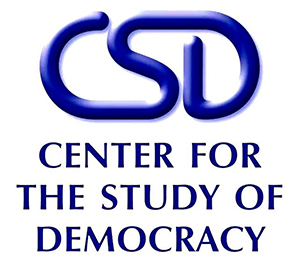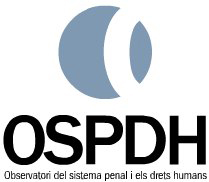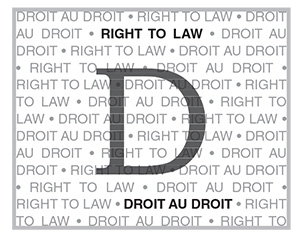Background
 European penitentiary systems are in the unique situation of being monitored by a number of bodies on different levels. The CPT carries on its long tradition of periodic and ad hoc visits, while the Optional Protocol to the Convention against Torture and Other Cruel, Inhuman or Degrading Treatment or Punishment, creating, in its famous ‘dual approach’, the UN Subcommittee on Prevention of Torture and the National Preventive Mechanisms is being ratified by a growing number of states, ensuring monitoring on a regional and global level. As reiterated by a position paper of the Association for the Prevention of Torture from 2003, the various mechanisms are bound to work together by exchanging information, consult and even carry out joint missions and visits. At the same time, the voluminous case-law of the European Court of Human Rights under, inter alia, Articles 3 and 5 of the European Convention on Human Rights, continues to strengthen the framework for the protection of detainees’ rights and the absolute prohibition of torture, inhuman and degrading treatment.
European penitentiary systems are in the unique situation of being monitored by a number of bodies on different levels. The CPT carries on its long tradition of periodic and ad hoc visits, while the Optional Protocol to the Convention against Torture and Other Cruel, Inhuman or Degrading Treatment or Punishment, creating, in its famous ‘dual approach’, the UN Subcommittee on Prevention of Torture and the National Preventive Mechanisms is being ratified by a growing number of states, ensuring monitoring on a regional and global level. As reiterated by a position paper of the Association for the Prevention of Torture from 2003, the various mechanisms are bound to work together by exchanging information, consult and even carry out joint missions and visits. At the same time, the voluminous case-law of the European Court of Human Rights under, inter alia, Articles 3 and 5 of the European Convention on Human Rights, continues to strengthen the framework for the protection of detainees’ rights and the absolute prohibition of torture, inhuman and degrading treatment.
Throughout the years, human rights mechanisms have identified numerous shortcomings of countries’ penitentiary systems: depreciated assets, poor material conditions, persistent overcrowding, unemployment, inadequate security, etc. The situation is even worse regarding some particularly vulnerable groups of inmates (women, foreigners, minorities, drug users and juvenile offenders) who require special treatment but are often deprived of adequate services. All these problems undermine the legitimacy of the penitentiary systems and the chances of offenders to successfully re-integrate in the society. As a result, many experts argue that prisons are no longer capable of rehabilitating or resocializing offenders and preventing recidivism. To respond to this challenge, many countries have introduced different alternatives to imprisonment (probation, community service). However, the impact of such policies on the resocialisation of offenders is yet to be studied and evaluated.
Meanwhile, there is also a need of a comprehensive monitoring tool, which, if applied on a regular basis, can produce reliable and systematised information about the situation in prisons in addition to visitation mechanisms and to the other efforts on national and local level. It will add a managerial perspective to the human rights approach, enforced by international standards, and will allow relevant stakeholders to create informed policies, concerning prisons and the prison population.
Objectives
Against this background this project aims at improving the situation in prisons and the resocialisation of offenders by exploring three distinct, yet closely related aspects:
(1) promoting the broader use of alternatives to imprisonment by studying the scope of their application, examining the role of communities and NGOs in their enforcement and collecting best practices. By reviewing the application of alternative penalties across the legal systems of the participating Member States, the project will outline innovative sanctioning approaches that satisfy three basic criteria: resocialisation effect, active involvement of the society and potential to unburden the prison system.
(2) Improving the situation of specific groups of vulnerable inmates (e.g. foreigners, drug users, minorities, juvenile offenders) through identification of such groups, examination of their problems, and collection and exchange of promising practices for their treatment. Being a key component of the overall custodial system, exploring the position of vulnerable inmates presupposes a review of various vulnerabilities within detention settings and the measures, addressing each of them. Again, the selection of practices will be based on their resocialisation potential and the involvement of the community and NGOs.
(3) Designing an instrument for regular prison monitoring by using the available and accessible information and designing and piloting a set of indicators. The prison monitoring index will contribute to the further opening of the prisons to oversight by international mechanisms and civil society actors. It will strengthen the capacity of stakeholders to design and implement informed prison-related policies. If applied properly and backed up by relevant regulations and political will, the system can lead to improving detention conditions by pointing to the most crucial factors that need to be addressed.
Documents and publications
- Country Background Papers on the Penitentiary System
- Country background paper - Bulgaria (Adobe PDF, 260 KB)
- Country background paper - Spain (Adobe PDF, 310 KB)
- Country background paper - Belgium (Adobe PDF, 343 KB)
- Country background paper - Germany (Adobe PDF, 277 KB)
- Country background paper - Lithuania (Adobe PDF, 357 KB)
- Methodological Guidelines:
- Country reports on Vulnerable Groups of Inmates:
- Country report - Belgium
- Country report - Bulgaria
- Country report - Germany
- Country report - Lithuania
- Country report - Spain
Country fiches on availability and accessibility of data on prisons
- Analysis of availability and accessibility of data in Bulgaria
- Analysis of availability and accessibility of data in Belgium
- Analysis of availability and accessibility of data in Germany
- Analysis of availability and accessibility of data in Lithuania
- Analysis of availability and accessibility of data in Spain
- Studies and reports
-
Ambulant sanction as an alternative to imprisonment in the European Union?
- Prison Conditions Monitoring Index: Methodology and Pilot Results
Newslettters
- RESOC newsletter n° 1 (January 2014)
- RESOC newsletter n° 2 (March 2014)
- RESOC newsletter n° 3 (September 2014)
- RESOC newsletter n° 4 (November 2014)
- RESOC newsletter n° 5 (December 2014)
- RESOC newsletter n° 6 (January 2015 - n° 1)
- RESOC newsletter n° 7 (January 2015 - n° 2)
Events
- Workshop on imprisonment and re-socialisation of offenders in Europe, Vilnius, Lithuania, 7-8 August 2013
- Workshop on alternatives to imprisonment in the EU, Barcelona, Spain, 13-14 March 2014
- Workshop on Re-socialisation of offenders in the EU, Dortmund, Germany, 28-29 August 2014
- International Conference "Re-socialization of Offenders in the European Union: Enhancing the Role of Civil Society", Sofia, Bulgaria, 19 January 2015
Consortium
The project is being implemented by a consortium of research institutes from five Member States (Bulgaria, Germany, Spain, Belgium and Lithuania) experienced in the field of prison reform and inmates’ rights: Center for the Study of Democracy (CSD) – Sofia, Bulgaria, University of Applied Sciences and Arts (UASA) – Dortmund, Germany; Observatory on the Penal System and Human Rights (OSPDH) of the University of Barcelona, Spain; Law Institute (LI) – Vilnius, Lithuania; and Association Droit au Droit (DAD) – Brussels, Belgium.
Each of the project partners is experienced in the area of analysing penitentiary systems and detainees’ rights and the team of experts as a whole combines significant expertise and knowledge related to the subject of the project. Furthermore, four of the partners have worked together under the project ‘Crime Repression Costs in Context’ (2007-2009) – a research endeavour under the Sixth Framework Programme the findings of which have been referred to in the European Commission’s report ‘Crime and Deviance in the EU’.
*Project "Re-socialisation of offenders in the EU: enhancing the role of the civil society (RE-SOC)" (JUST/2011/JPEN/AG/2947). Project leader: Center for the Study of Democracy (Bulgaria), 2013-2014
 |
 |
 |
 |
 |

With financial support from the Criminal Justice Programme of the European Union





